With the European Commission set to release its Digital Omnibus and the Cyber Security Act (CSA) review, the conversation around Europe’s cyber resilience is at a critical juncture. As the Digital Omnibus aims to simplify reporting of incidents, an exacerbating factor lies in the “technical debt” from outdated and End-of-Life (EoL) technology, increasing the likelihood of severe incidents that take longer to resolve. With the CSA review looking into potential updated security measures for critical infrastructure, the risks associated with EoL devices cannot remain unaddressed. Effectively mitigating this legacy risk is essential for the success of any new policy framework and for securing the long-term resilience of Europe’s digital backbone.
This roundtable discussion, hosted by WPI Strategy and Cisco, will provide exclusive insights from the new WPI Strategy report, “Update Critical”. The report provides an economic analysis of hidden costs of technical debt across critical infrastructure sectors, comparing approaches across key geographies. Timed to coincide with the new Commission publications, this event will convene senior policymakers and technical experts to discuss how to bridge the gap between future policy and the current reality of legacy systems. We will delve into concrete government strategies to effectively address this critical challenge, from enhancing legacy device visibility to implementing dedicated funding programs.

 Kimmo Koski, Managing Director, CSC – IT Center for Science
Kimmo Koski, Managing Director, CSC – IT Center for Science Dr. Kimmo Koski started at CSC in August 2004 with a mission to support Finnish research providing world-class e-infrastructure and related services. This include investments in national resources and active participation in European initiatives. The most recent example is the eco-efficient datacenter hosting the LUMI EuroHPC pre-exascale system, which is currently the most powerful computer in Europe according to the TOP500 list and one of the major resources for AI driven computing.
Koski has been involved in various European and global collaborations in high-performance computing, data management, networks and cloud activities. Examples include EU initiatives, such as EuroHPC, EUDAT, EOSC and PRACE.
Increasing focus for his activities is how to promote the development of the balanced HPC Ecosystem including different kind of computing elements, AI, quantum and data analytics – in addition to the main asset, namely competent people.

 Alessandra Poggiani, Director General, Cineca
Alessandra Poggiani, Director General, Cineca Alessandra Poggiani is Director General of Cineca.
She has more than twenty years of experience in the field of technological innovation and has collaborated with Italian web pioneers since the early days. She has been dealing with innovation in the public sector for over 20 years and has solid experience in the management of government-owned and in-house companies.
She has been Administrative Director of Human Technopole, CEO and Managing Director of Venis s.p.a., Director General of the Agency for Digital Italy (AGID), CEO of Lait s.p.a., Head of Communication, Advocacy and External Relations of WWF International for the Mediterranean Program Office, Head of Corporate Online Communication of Enel s.p.a., and Head of Information of the Support and Monitoring Unit of the Euro-Mediterranean Partnership for the Environment.
She has always combined her professional work with academic positions, including Adjunct Professor of Business Communication and Innovation Marketing at the Faculty of Economics, Roma Tre University, Visiting Lecturer in Digital Economics at the Business School of Imperial College London and Lecturer in Digital Communication Marketing and New Media Interfaces at the University of Rome La Sapienza, Lecturer of Digital Transformation for the Public Administration at the Business School of ca Foscari University of Venice.
She participates in several industry committees, including the Digital Economy Commission of the Italian section of the International Chamber of Commerce ICC (since 2016), the Advisory Board of “Digital Italy of the Innovation Group (since 2016) and the Innovation Board of the Ca’ Foscari Foundation (since 2017).
Over the years, he has led and supervised several consulting and research projects about digital economy, collaborative innovation and new consumer behaviors and she is also the author of numerous articles and publications on the topics of digital transformation and public economy.

 Valeriu Codreanu, Head of High-Performance Computing and Visualization, SURF
Valeriu Codreanu, Head of High-Performance Computing and Visualization, SURF Valeriu studied Electrical Engineering and got his MSc at the Polytechnic University of Bucharest. He followed-up with a PhD in Computer Architecture at the same institute, graduating in 2011 after a research stay at TU Delft. Valeriu continued as a researcher at Eindhoven University of Technology and University of Groningen, working on GPU computing, computer vision, and embedded systems. In 2014, he joined SURFsara as an HPC consultant and in 2016 became the PI of an Intel Parallel Computing Center project on ‘Scaling up Deep Learning’, subsequently leading the Machine Learning team at SURF. Valeriu is currently leading the High-Performance Computing and Visualization activities at SURF, responsible for the Dutch National Supercomputing infrastructure, while also supporting SURF’s participation in consortiums such as LUMI or Jules Verne

 Utz-Uwe Haus, Distinguished Technologist, Head of HPE HPC/AI EMEA Research Lab, HPE
Utz-Uwe Haus, Distinguished Technologist, Head of HPE HPC/AI EMEA Research Lab, HPE Utz-Uwe Haus studied mathematics and computer science at the Technical University of Berlin (TU Berlin) and holds a doctorate in mathematics from the University of Magdeburg (Germany). He worked on nonstandard applications of mathematical optimization in chemical engineering, material science, and systems biology. After five years as senior researcher at the Department of Mathematics of ETH Zürich, he co-founded CERL, the CRAY EMEA Research Lab in 2015, which he transformed into the EMEA part of Hewlett Packard Labs.
His current interests focus on enabling middleware for sustainable and secure usage of HPC/AI systems and digital twins.

 Irena Bednarich, Vice President, International Government Relations, EMEA, APJ, LATAM, HPE
Irena Bednarich, Vice President, International Government Relations, EMEA, APJ, LATAM, HPE Irena Bednarich is the Vice President of International Government Relations APJ, EMEA and LATAM at Hewlett Packard Enterprise. In this role, she leads HPE’s government relations and public policy team in these regions and supports key public sector pursuits across EMEA.
After 14 years in Brussels, Irena has recently relocated to Dubai, UAE, to drive stronger alignment with the business in an important growth region. Irena is fluent in Italian, Slovenian, French, English and German and has working knowledge of Spanish.
Discover the main topics that will shape our discussions:
All timings are in CEST.
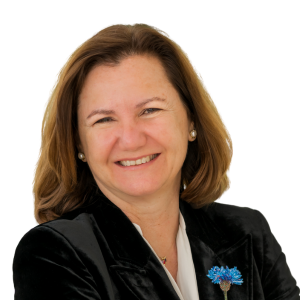
 Pastora Valero, Senior Vice President of International Government Affairs, Cisco
Pastora Valero, Senior Vice President of International Government Affairs, Cisco Pastora Valero is the Senior Vice President of Cisco’s International Government Affairs and leads government affairs activities in the Europe, Middle East, and Africa (EMEA), and Asia Pacific, Japan, and Greater China (APJC) regions. She manages a team of professionals who engage lawmakers, regulators, and industry stakeholders across both regions on technology and communications policies that can deliver the promises of a digital world. Pastora joined Cisco in 2003, and she has close to three decades of experience in regulatory and public policy issues concerning telecommunications, internet regulations, competition, and trade, among others. During her 19-year tenure at Cisco, she has successfully advocated for policies that foster the deployment of broadband networks, enable the future of wireless technologies, promote the green and digital transition, and enhance privacy and cybersecurity.
She is passionate about mentorship, talent development, and women’s leadership—serving as the executive sponsor for the Women of Cisco Community in EMEA—and is an advocate for the role of digital technologies in powering a more sustainable and inclusive future for all. She is also a member of Cisco’s Senior Leadership Team in EMEA and APJC and the country sponsor for Egypt, a key market for Cisco in the Middle East region.
Prior to Cisco, Pastora was Vice-President of Regulatory Affairs for Global TeleSystems (GTS), a pan-European fibre-optic network operator. She started her career with the Brussels law firm Van Bael & Bellis, dealing with EU trade and competition law issues.
A qualified lawyer in Spain, she holds a master’s degree in European law (ULB, Brussels) and an L.L.M in international law (VUB, Brussels). She serves on the Board of Directors of Digital Europe and has represented Cisco on boards of various technology trade associations that are active in the EMEA market, including serving as a former vice-chair of the American Chamber of Commerce to the EU.
Pastora Valero, Senior Vice President of International Government Affairs, Cisco

 Vincenzo Rampulla, Director, WPI Strategy
Vincenzo Rampulla, Director, WPI Strategy Vincenzo Rampulla is a Director at WPI Strategy having spent several years working on broadcasting and online safety policy at Ofcom and leading Smart Data investment at the Department for Business.
He brings a wealth of experience to WPI’s developing regulatory advisory service across a range of industries that will be key to Britain’s future growth prospects.
Vincenzo Rampulla, Director, WPI Strategy
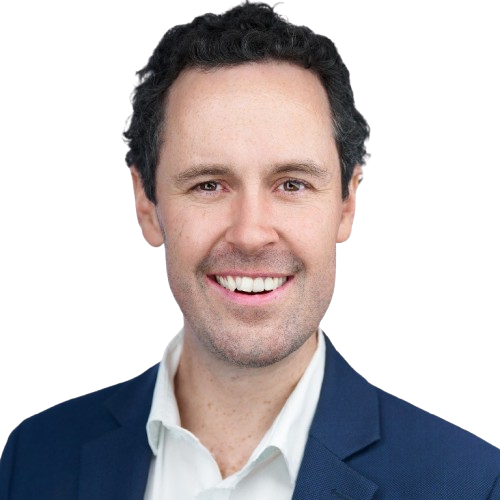
 Chris Gow, Head of Brussels Office, CISCO
Chris Gow, Head of Brussels Office, CISCO Chris leads the EU Public Policy team at Cisco, with a focus on all things cybersecurity and data protection. Chris heads the Brussels Office for Cisco’s Government Affairs team, responsible for engagements with the EU institutions.
He joined the Government Affairs team in Europe, Middle East, Africa in 2008. Chris has held multiple industry leadership roles. He is currently a Member of the Board of the European Internet Forum (EIF) and of DIGITALEUROPE.
Prior to Cisco, he was responsible for campaign strategies and digital economy policy work at DIGITALEUROPE. He has been in Brussels since 2003, initially as an Assistant to a Member of the European Parliament, working on internal market and legal affairs issues. He studied Philosophy, Politics and Economics at Oxford University.
Chair: Chris Gow, Head of Brussels Office, Cisco
European Year of Skills, European Union Initiative
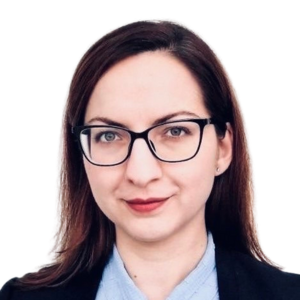
 Alena Turoňová, Cyber attachée, CZ Permanent Representation to the EU
Alena Turoňová, Cyber attachée, CZ Permanent Representation to the EU Alena is a Cyber Attachée at the Permanent Representation of the Czech Republic to the EU in Brussels, focusing on the EU cybersecurity agenda. She represents Czech interests in digital policy and works to strengthen coordination among Member States and EU institutions. Prior to her current role, she was part of the Czech National Cyber and Information Security Agency (NÚKIB), where she focused on international cooperation and policy development.
Alena Turoňová, Cyber attachée, CZ Permanent Representation to the EU
European Year of Skills, European Union Initiative
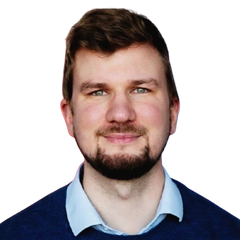
 Jakub Dysarz, Cyber attaché, Permanent Representation of the Republic of Poland to the EU
Jakub Dysarz, Cyber attaché, Permanent Representation of the Republic of Poland to the EU Jakub Dysarz is a cyber attaché at the Permanent Representation of the Republic of Poland to the European Union. Jakub works on large-scale cybersecurity incidents, legal aspects of cybersecurity crisis management, incident reporting and certification of products and services.
Jakub Dysarz, Cyber attaché, Permanent Representation of the Republic of Poland to the EU
European Year of Skills, European Union Initiative
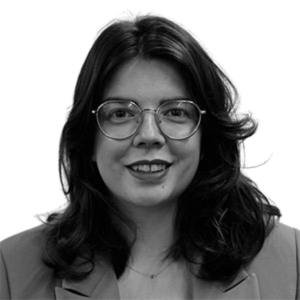
 Kia Slæbæk Jensen, Cyber attaché/Chair of the Horizontal Working Party on Cyber Issues, The Danish Permanent Representation to the EU for the Ministry of Resilience and Preparedness
Kia Slæbæk Jensen, Cyber attaché/Chair of the Horizontal Working Party on Cyber Issues, The Danish Permanent Representation to the EU for the Ministry of Resilience and Preparedness Kia Slæbæk Jensen is the Chair at the Horisontal Working Party on Cyber Issues during the Danish Danish Presidency of the Council of the European and has over seven years of cybersecurity policy experience. Kia specialises in cybersecurity preparedness, legislation and international collaboration, and has been closely involved in the negotiation of major EU cybersecurity initiatives including the NIS2-directive, the Cyber Resilience Act and the Cyber Solidarity Act. Prior to joining the Danish Permanent Representation, Kia led the work regarding EU issues and collaboration at the Danish Centre for Cyber Security.
Kia Slæbæk Jensen, Cyber attaché/Chair of the Horizontal Working Party on Cyber Issues,
The Danish Permanent Representation to the EU for the Ministry of Resilience and Preparedness
European Year of Skills, European Union Initiative
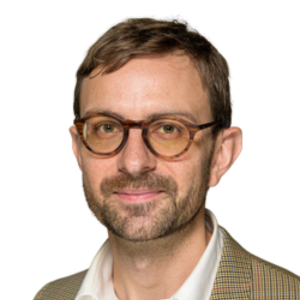
 Zach Meyers, Director of Research, CERRE (Centre on Regulation in Europe)
Zach Meyers, Director of Research, CERRE (Centre on Regulation in Europe) Zach Meyers is Director of Research at the Centre on Regulation in Europe (CERRE). Previously the assistant director of the Centre on European Reform, Zach Meyers has a recognised expertise in economic regulation and network industries such as telecoms, energy, payments, financial services and airports. In addition to advising in the private sector, with more than ten years’ experience as a competition and regulatory lawyer, he has consulted to governments, regulators and multilateral institutions on competition reforms in regulated sectors.
Zach Meyers, Director of Research, CERRE (Centre on Regulation in Europe)
European Year of Skills, European Union Initiative

 Vincenzo Rampulla, Director, WPI Strategy
Vincenzo Rampulla, Director, WPI Strategy Vincenzo Rampulla is a Director at WPI Strategy having spent several years working on broadcasting and online safety policy at Ofcom and leading Smart Data investment at the Department for Business.
He brings a wealth of experience to WPI’s developing regulatory advisory service across a range of industries that will be key to Britain’s future growth prospects.
Vincenzo Rampulla, Director, WPI Strategy

 Pastora Valero, Senior Vice President of International Government Affairs, Cisco
Pastora Valero, Senior Vice President of International Government Affairs, Cisco Pastora Valero is the Senior Vice President of Cisco’s International Government Affairs and leads government affairs activities in the Europe, Middle East, and Africa (EMEA), and Asia Pacific, Japan, and Greater China (APJC) regions. She manages a team of professionals who engage lawmakers, regulators, and industry stakeholders across both regions on technology and communications policies that can deliver the promises of a digital world. Pastora joined Cisco in 2003, and she has close to three decades of experience in regulatory and public policy issues concerning telecommunications, internet regulations, competition, and trade, among others. During her 19-year tenure at Cisco, she has successfully advocated for policies that foster the deployment of broadband networks, enable the future of wireless technologies, promote the green and digital transition, and enhance privacy and cybersecurity.
She is passionate about mentorship, talent development, and women’s leadership—serving as the executive sponsor for the Women of Cisco Community in EMEA—and is an advocate for the role of digital technologies in powering a more sustainable and inclusive future for all. She is also a member of Cisco’s Senior Leadership Team in EMEA and APJC and the country sponsor for Egypt, a key market for Cisco in the Middle East region.
Prior to Cisco, Pastora was Vice-President of Regulatory Affairs for Global TeleSystems (GTS), a pan-European fibre-optic network operator. She started her career with the Brussels law firm Van Bael & Bellis, dealing with EU trade and competition law issues.
A qualified lawyer in Spain, she holds a master’s degree in European law (ULB, Brussels) and an L.L.M in international law (VUB, Brussels). She serves on the Board of Directors of Digital Europe and has represented Cisco on boards of various technology trade associations that are active in the EMEA market, including serving as a former vice-chair of the American Chamber of Commerce to the EU.
Pastora Valero, Senior Vice President of International Government Affairs, Cisco

